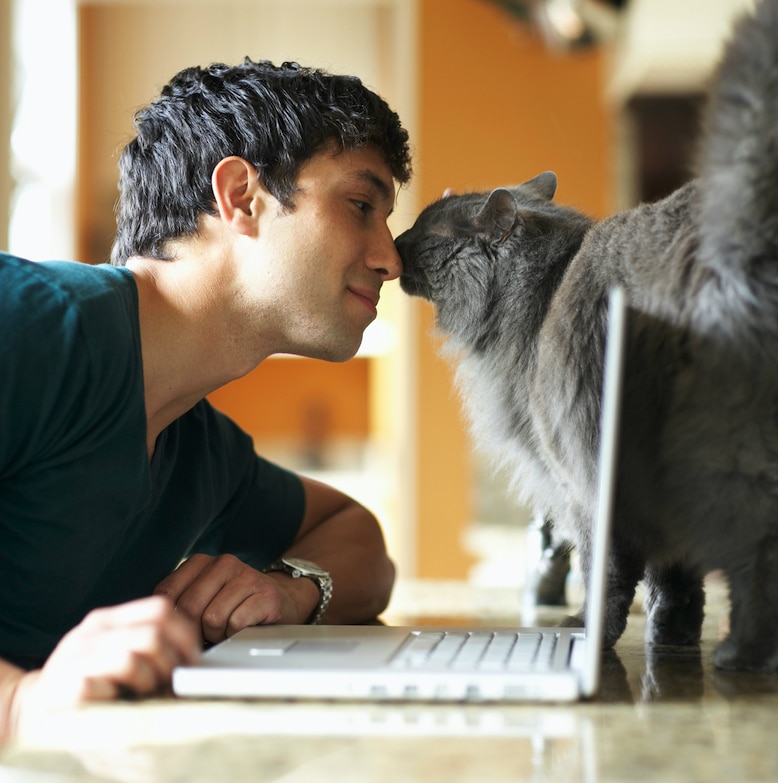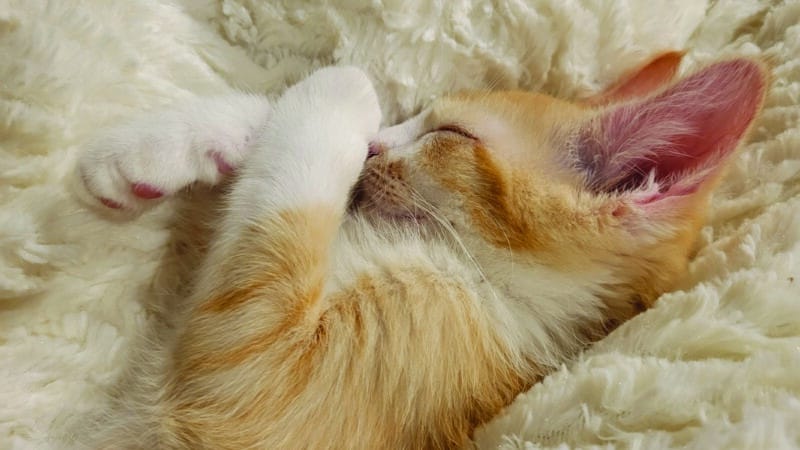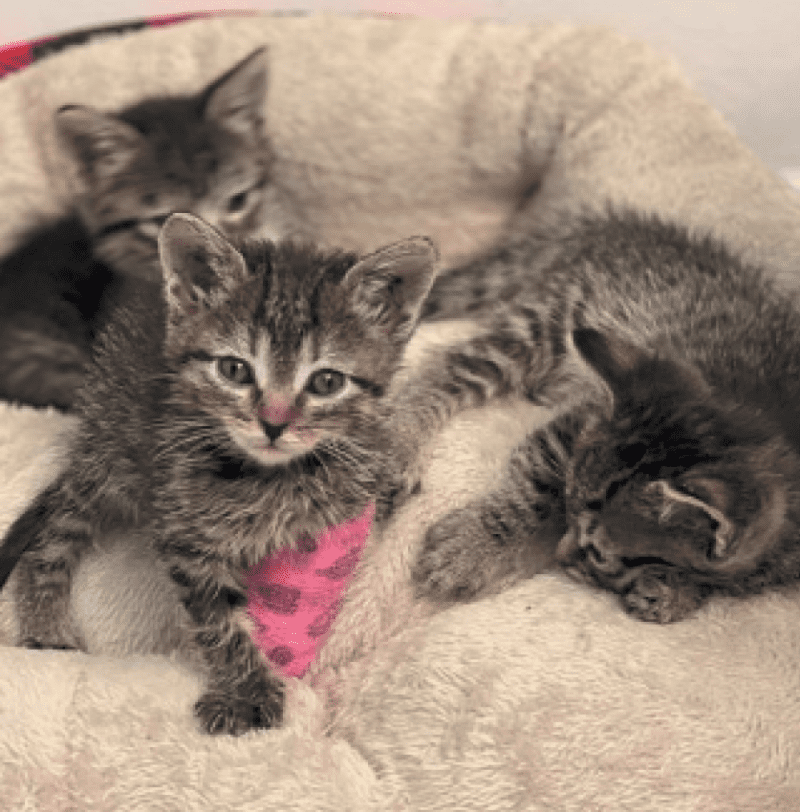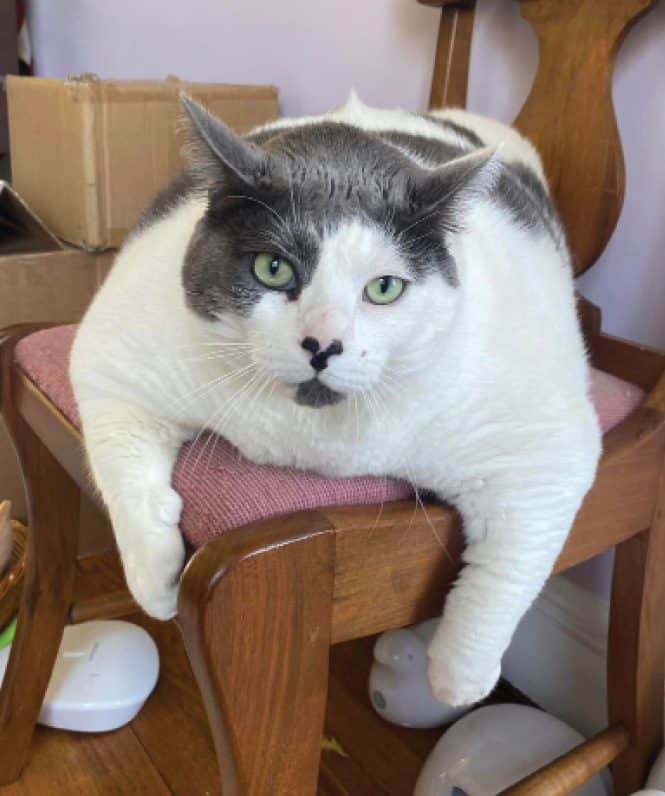One of the benefits of working at home as a freelance writer is spending more time with my cats — but countless times, they have messed up my typing and even accidentally shut off my computer by rubbing their faces and butting their heads on my hands. So, what gives? Why do cats rub against you?
This universal cat behavior is a compliment, experts say, because your kitty is communicating with you and marking you as his kin.
“Cats define their worlds through scent,” says Marilyn Krieger, a certified cat behavior consultant in California, who is also known as The Cat Coach. “It’s one way they identify their families, their friends and also their enemies. When a cat is rubbing up against you, what they’re doing is exchanging your scent. It’s reinforcing that you are part of [their] group. It’s very sweet.”
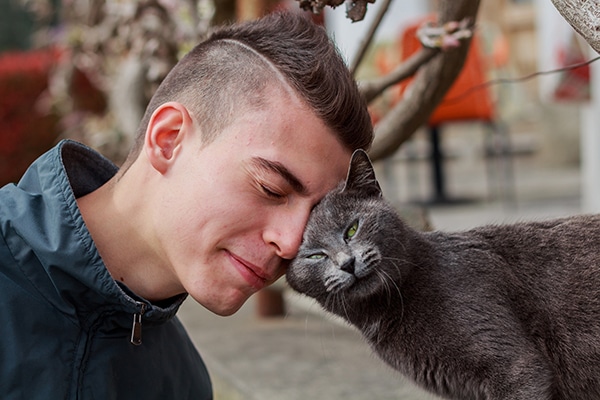
Why do cats rub against you? Long-lasting messages from scent mingling.
Cats have scent glands that secrete pheromones in several parts of their bodies, including their cheeks, tails, foreheads, paw pads and anal areas. When they rub something or someone, they deposit this scent and it sticks, says Amy Shojai, a certified animal behavior consultant in Texas.
“Scent communication not only signals something when the cat goes through the motions, but the smelly message lingers for long-term communication, too,” Amy says.
“For other types of communication, the cat and the other party must be present to see the friendly tail greeting, for example, or to hear the purr and hiss,” says Amy, the author of more than 30 pet-care books, including ComPETability: Solving Behavior Problems in Your Multi-Cat Household. “Vocal communication can only last as long as one breath at a time,” she says. “But scent continues to communicate, even when kitty has left the building.”
Cat rubbing can also be a matter of claiming territory, but it goes beyond that, Shojai says. Territorial marking is more directed toward objects and spaces, and typically involves clawing and cheek rubbing.
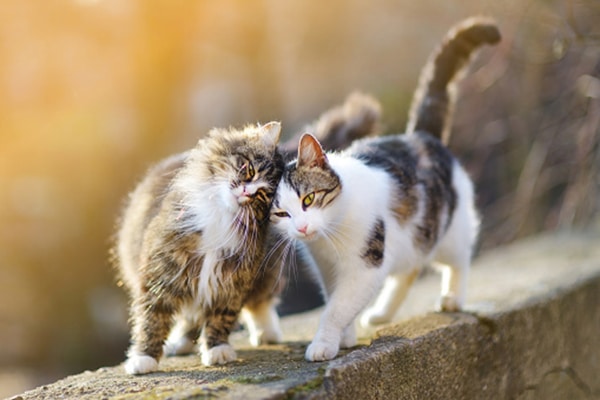
Why do cats rub against you? To mark members of their tribe.
In colonies of feral cats, the felines mark each other as members of their tribe by rubbing and bunting their heads among themselves. This is a form of communication and acceptance, Krieger says. When cats transfer this behavior to humans, they are mingling their scents with ours, and also claiming acceptance. If a cat doesn’t like you, she probably will not rub against you, Krieger says.
When cats rub you, they are saying, “You’re part of the group, I’m part of you, we’re all part of the same group,” she says.
Do cats target different spots to rub on purpose?
Cats don’t really target certain human body parts with different messages; they usually just go for whichever area is accessible, Krieger says.
However, if a cat rubs your face, it feels more intimate and might be something a kitty only does if he particularly likes you. One of the most distinctive cat rubs is headbutting, which is when cats bump their heads on you with oomph. This, Shojai says, signals “I am your friend.”
“Not only does the head rubbing/bunting behavior leave pheromone signals that identify friendly encounters, it also places the cat’s face and eyes in vulnerable positions,” she says. “So, it’s not only expressing friendliness, but also trust. Typically, it’s the most confident cat that offers the head-bunting behavior, too.”
Cats also like to walk closely past us, rubbing their whole bodies against our legs. They often finish this by wrapping their tails around our legs. “This, again, is a friendly greeting between cats, and by extension, the humans they love and trust,” Shojai says.
Want your cat to rub against you? Reinforce the behavior!
As long as your cats aren’t knocking things out of your hands, you probably enjoy it when they rub up against you. Pet your cats when they rub against you to reinforce and reward the behavior, Krieger recommends.
“When cats come up to you… and they haven’t seen you all day and they rub you on the legs — if you automatically pet them, you reinforce that behavior and you put your scent back onto the cat,” she says. “They enjoy the affection and they like that.”
Originally published in 2018.
Featured photo: Thomas Northcut/Getty Images
Read Next: The Cat Headbutt: What Does It Mean, and Why Do Cats Do It?

